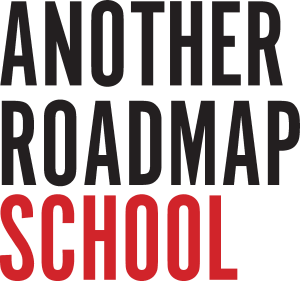Grassrouting the Roadmap
This outline for the preparation of a research project proposal departs from the global perspective of the ‘UNESCO Roadmap for Arts Education’. The Roadmap aims to better the conditions of education worldwide through cultural education. In the Roadmap, the participation in cultural education is stipulated as an universal human right as well as an universal tool which activates a creative potential to achieve wealth and enables learners to deal peacefully with diversity. However, the most influential position in formulating and approving the Roadmap, was reserved first and foremost to political stakeholders and renowned experts from nations participating in this process. While addressees of the Roadmap as well as practitioners in cultural education were involved in the process of developing the Roadmap, we need to ask on which levels the involvement of critical voices were allowed or will be enabled in the future.
In Austria, the basic ideas of the Roadmap seem to be effective mainly on the governmental level. However, until now, it has only become evident in a fragmentary way how the concepts will be realised in practice, if and how they can influence the conditions of living and working of stakeholders in cultural education. Therefore, we want to use the situation in Austria as a case study in order to examine who the Roadmap is directed at, which institutions and stakeholders are affected by it in terms of who receives, implements or interprets the Roadmap in Austria. Apart from that, we want to question where and in which contexts the contents of the Roadmap are addressed critically, and how and where this critique is voiced. In the proposed project, we want to map fields and stakeholders which are affected by the recommendations of the Roadmap. Furthermore, we want to to read the Roadmap from the perspective of a local history because notions of protecting “local cultures and traditions” against “suppression and forgetting” gain, in the context of Austrian history, a different meaning and specific significance.
Methodically, we hope that contextualisation will support our research in this respect. Through our fieldwork and analytical research, we want to unearth and describe contexts where conceptual notions which appear in the Roadmap emerged earlier in Austrian history. Additionally we aim to investigate in which context they were developed, and, subsequently where and how the relation of culture and education is being discussed currently. We plan to carry out this fieldwork in schools as well as in non-schooling areas, amongst others in education, social work, advancement of integration, etc.
The title of our research project “Grassrouting the Roadmap” relates on the one hand to the direction which determines our interrogation, which is not top down but rather bottom up. At the same time, we are not concerned with rooting the Roadmap, but rather aiming at procedurally changing it through our project by locating it on ‘desire paths’ of everyday life in society today (paths which were created in educational initiatives in and out of schools, in critical and self-organised associations, movements, discourses and activist practises).
In order to address the global dimension of the Roadmap we intend to work not only with stakeholders in Austria but also aim to exchange with other researchers in a transnational research network in order to shift the focus of our work from working within the construction of the Austrian nation, but further extending it to ramifications and interrelations on the global level.
Authors: Iver Ohm, Carla Bobadilla, Barbara Mahlknecht, Karin Schneider & Andrea Hubin
